Diabetes is a disease that can develop from a lack of insulin production in the body or when your body can’t use insulin properly. The world health organization (WHO) has listed diabetes as the number 5 killer disease in the world.
For people with diabetes, having too much glucose in their blood for a long time can cause some severe complications. It can destroy nerves and cause you to have poor circulation, especially in your legs and feet. Without proper attention and care, a small injury can develop into an open sore that can be difficult to treat.
 How does diabetes affect my feet?
How does diabetes affect my feet?
The high blood glucose level in diabetes can damage the nerves in your body leading to one of the most devastating complications called diabetic neuropathy. The damage can occur in any part of your body, but it is most common in your arms and legs, with the lower extremities affected first. This type of nerve damage is known as peripheral neuropathy. When the network of nerves in your feet has damaged the sensation of pain in your feet is reduced. The loss of feeling can make it hard for you to tell if you have a blister or sore. If left untreated, these little problems can get worse and turn into ulcers (serious, deep sores).
Diabetes also affects the flow of blood. Without proper blood flow, it takes longer for a sore or cut to heal. Because diabetes interferes with the body’s ability to heal, even the smallest foot wounds can become infected, spread to the bone, and lead to an amputation. According to an estimate, one in five people with diabetes who seek hospital care do so for foot problems.
What problems can diabetes cause to my feet?
Diabetes can cause the following problems to your feet that can lead to amputation if not treated promptly:
- Blocked blood vessels in the leg when there is poor circulation from diabetes.
- Foot ulcers.
- Calluses and corns.
- Cracks and dry skin.
- Blisters.
- Bunion and hammertoes.
- Charcot foot – a foot deformity caused by neuropathy.
- Nail problems such as ungrown toenails or fungal infections.
- Osteoporosis (brittle bones) due to neuropathy and poor circulation.
How do I prevent these foot problems?
Keeping your blood sugar levels under control is the best way to take care of your feet. Test your blood sugar often, eat healthy foods, and include physical activity in your daily routine to help keep your feet healthy.
Then follow the below tips to take good care of your feet:
10 – Check your feet every day
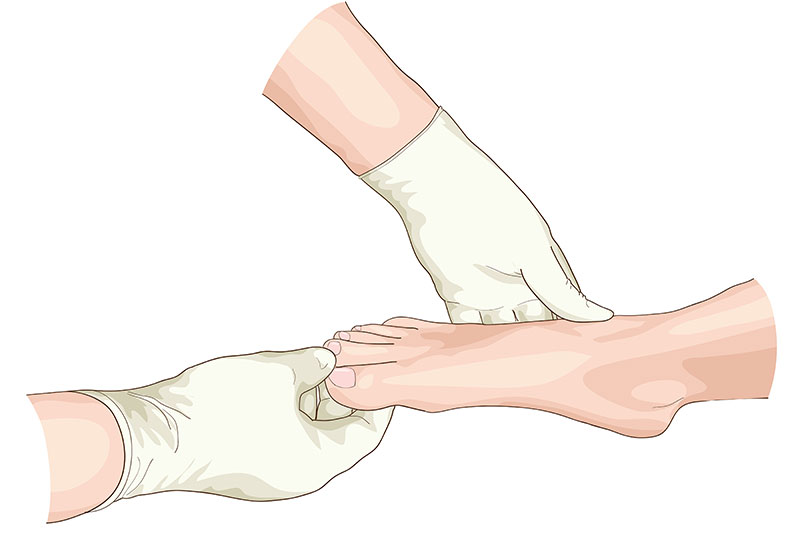
It is important to examine your feet every day as neuropathy can make it difficult to feel injuries and sores to your feet. Every morning, closely look at the back of your heels, sides, and bottoms of your feet (use a mirror if necessary), and between your toes for anything out of the ordinary. Call your doctor if you have blisters, cuts, sores, redness, or swelling.
9 – Wash your feet every day
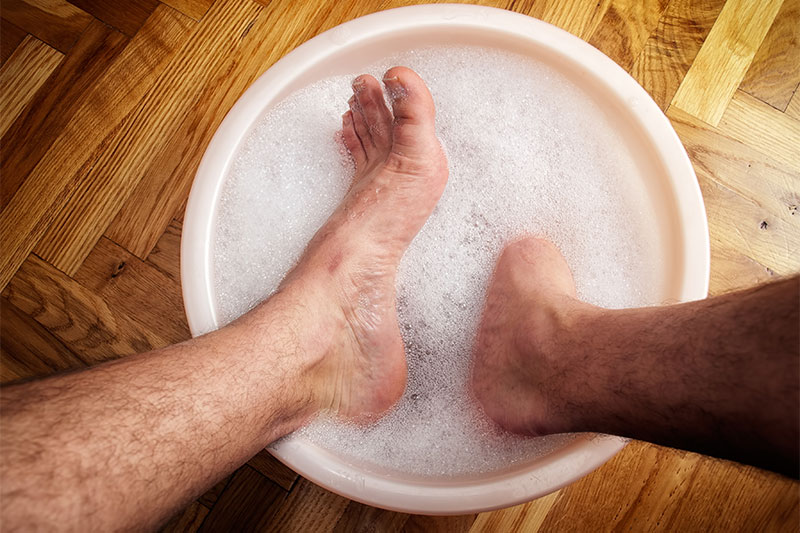
Wash your feet daily in warm water to keep your feet clean and wash away any small debris or irritants that might have been picked up on the soles of your feet. Use a soft towel to dry them gently, especially between the toes. Use talcum powder to keep the skin dry between the toes.
8 – No ‘self-surgery’
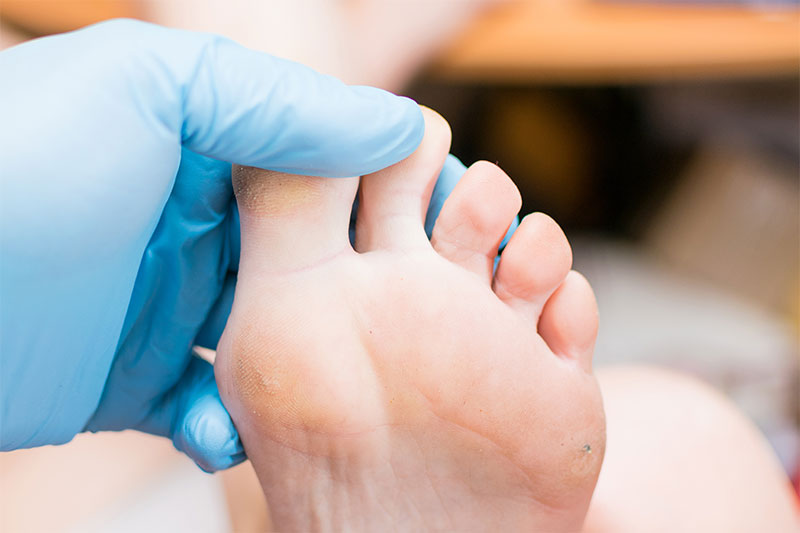
Never trim calluses or corns yourself, and don’t use over-the-counter medicated pads. If you are facing problems, ask a professional medical practitioner to help you with it.
7 – Trim your toenails
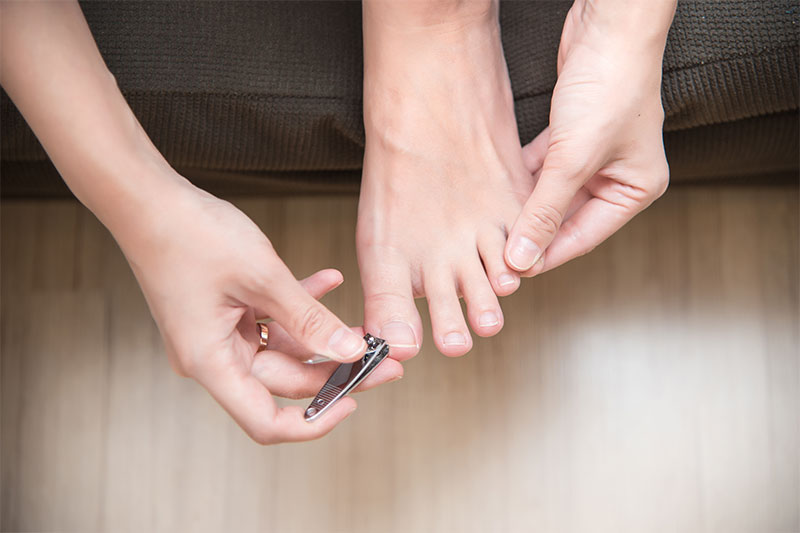
Always cut your nails with a safety clipper or see a professional for nail clipping. Cut them straight across and leave plenty of room out from the nailbed. It might help to soak your toenails in warm water to soften them before you cut them.
6 – Moisturize your feet
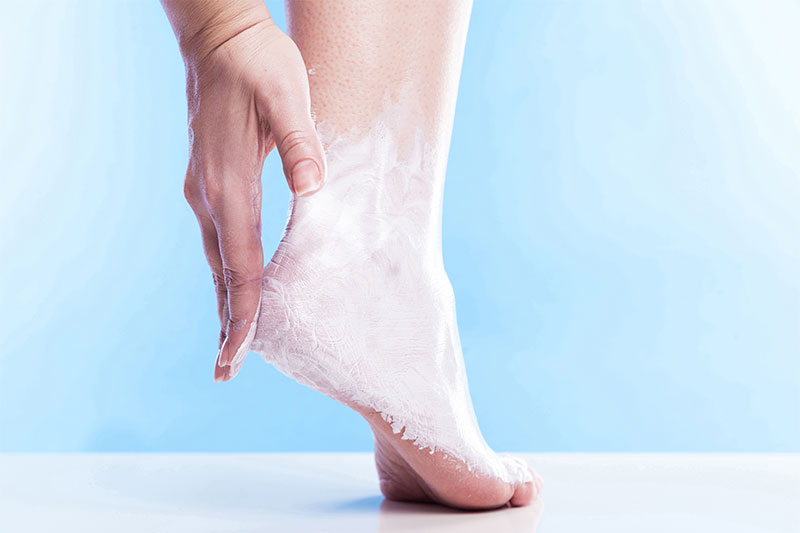
Rub a thin coat of skin lotion or moisturizing cream on the tops and bottoms of your feet. Do not put lotion between your toes as it may lead to infection.
5 – Quit smoking
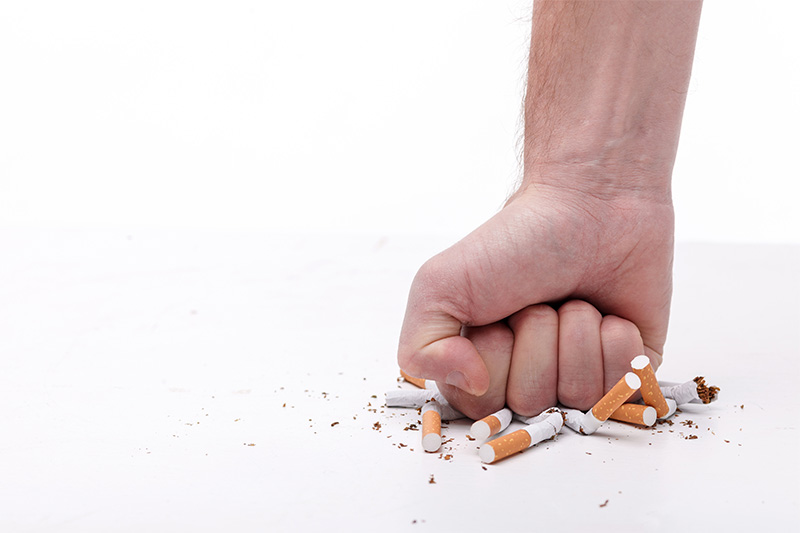
If you’re a smoker or use other types of tobacco, quit now. Smoking makes it difficult for wounds to heal by reducing the blood flow in the small blood vessels of your legs and feet.
4 – Proper footwear

Always wear shoes to protect your feet from injuries. Going barefoot can leave your feet vulnerable to cuts, puncture wounds, and splinters. Wear well-cushioned shoes that fit well and allow your toes to move. Avoid wearing high-heeled shoes and shoes with pointed toes as they can create pressure, which might contribute to bone and joint disorders as well as diabetic ulcers.
When you get new shoes, break them in slowly so you won’t get blisters. Wear them for just an hour or two a day for the first 1 or 2 weeks. Look inside your shoes before you put them on for things like gravel or torn linings.
3 – Wear soft socks

Don’t wear shoes without clean and dry socks. Wear soft socks made of fibers that pull sweat away from your skin and help keep your feet dry, such as special acrylic fibers (not nylon) and cotton. Avoid wearing socks with tight elastic bands as they can reduce blood circulation to your feet.
2 – Contact your doctor for any foot problem
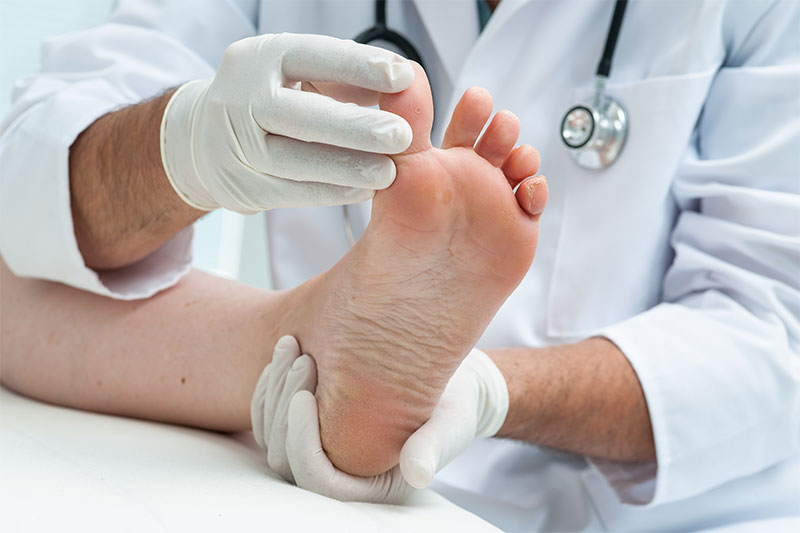
Take foot problems seriously. See your doctor right away for any open sores or infected areas on your feet. The sooner these are treated, the less the risk of serious complications will be.
1 – Schedule regular foot exams
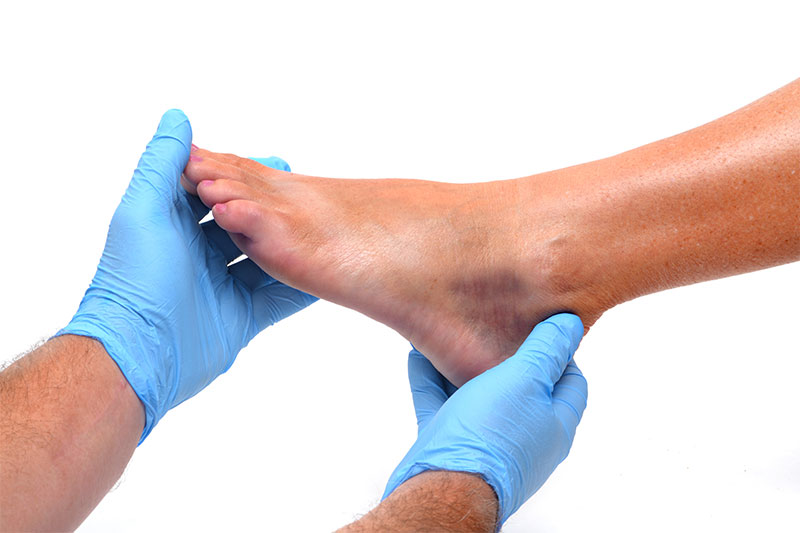
Experts recommend that people with diabetes have a comprehensive foot exam each year (if you are at high risk, get it checked every 3 to 6 months) to check for early signs of nerve damage, poor circulation, or other foot problems.
Remember, with diabetes, taking care of your feet is almost as important as monitoring your blood sugar.

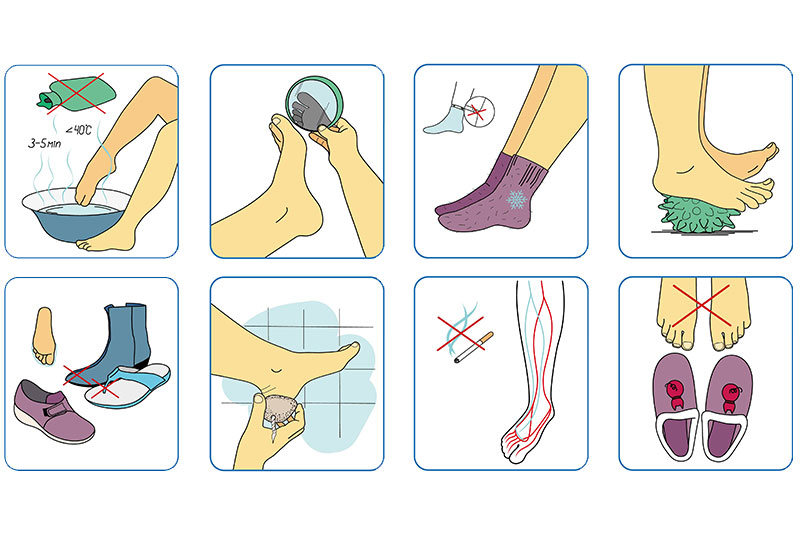 How does diabetes affect my feet?
How does diabetes affect my feet?
